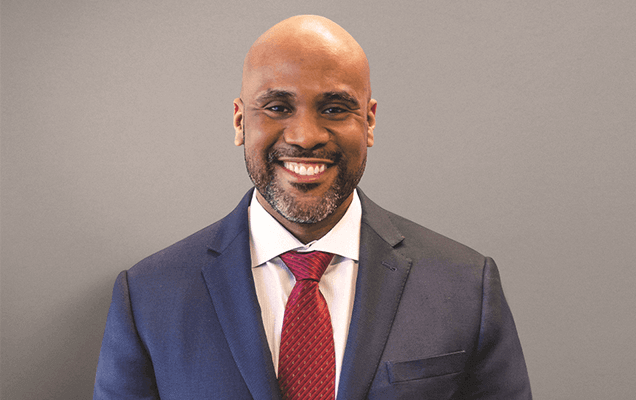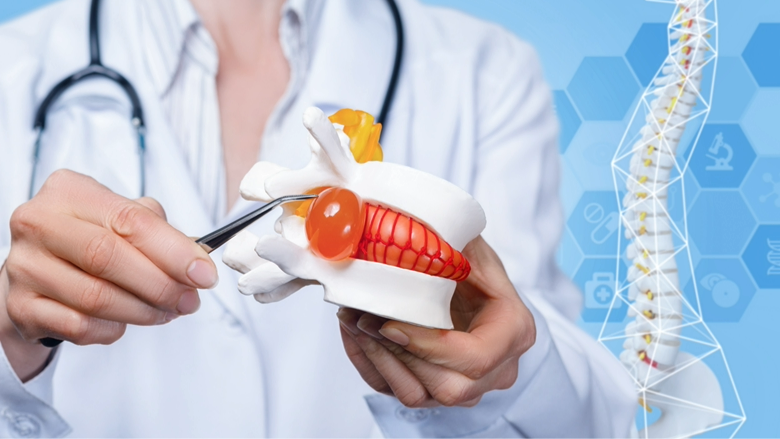Research indicates that nearly everyone will experience lower back pain or sciatica at one time or another. The pain coming from your spine may limit your ability to perform your normal duties at work or engage in recreational activities and sports.
Causes of low back pain may include:
- Degenerative disc disease
- Lumbar arthritis
- Muscular strain
- Spondylolisthesis
- Herniated or bulging discs.
Regardless of the cause of your pain, you should visit your doctor when back pain strikes to get started on the correct treatment program right away.
Treatment for back pain may include conservative therapies like physical therapy or chiropractic care. Severe cases of sciatica may be treated with cortisone injections. If conservative treatment fails, you may need to visit a doctor and consider lower back surgery for your condition.
There are many different surgical approaches to treat back pain or sciatica. Some of these procedures may cause significant trauma to surrounding tissues or require fixation with hardware. Other procedures may only require a small incision with minimal trauma to surrounding tissues.
One common surgery that many New Jersey residents consider to treat their back pain and sciatica is a called a lumbar discectomy. This procedure is considered the gold standard in treating back pain or sciatica caused by a herniated or bulging disc.
Taking the time to learn about lumbar discectomy surgery and the recovery from it can help you understand what to expect if you decide to have the procedure for your back pain.
Lumbar Discectomy Surgery
Lumbar discectomy surgery is performed whenever a herniated disc is pinching nerves in your back. Some doctors prefer to use an open approach when performing lumbar discectomy. This requires a large incision and dissection of your back muscles.
Other neurosurgeons use a minimally invasive approach to lumbar discectomy. This procedure uses a tiny incision with sparing of your back muscles. Your doctor will use specialized tools to remove the disc material that is pinching your nerves and causing your pain.
Both surgeries achieve the same goal-to relieve pressure from your spinal nerves. However, the minimally invasive approach may hasten your lumbar discectomy recovery time.
It's time to get back to doing what you love.
Lumbar Discectomy Recovery Time
When considering lumbar discectomy recovery time, remember that everyone heals differently and everyone’s condition is unique. General guidelines help by providing a framework of what to expect, but your particular road to recovery after lumbar discectomy may differ slightly from the expected course.
The lumbar discectomy recovery timeline starts in the hospital and progresses until you are fully recovered and back to your normal active lifestyle.
In the hospital
Your lumbar discectomy will take place in a NJ hospital or surgical center. The procedure takes place under general anesthesia, and after the surgery, you will be brought to a recovery area to be monitored by your doctor and the nursing team.
Most patients spend one evening in the hospital after the surgery to make sure that you are fully recovered from anesthesia. Soon after waking, the nursing team will help you get out of bed and start moving around as complete bed rest is not recommended. Taking a walk down the corridor is encouraged, and the nursing staff will make sure you are able to get around your room without difficulty.
Your surgical team will monitor your symptoms and surgical incision in the hospital after your lumbar discectomy. The day after your surgery, your doctor will likely discharge you from the hospital.
Three days after surgery
Once you return home from your lumbar discectomy surgery, you will be encouraged to protect your back while trying to remain as mobile as possible. Several short walks should be taken each day, and care should be taken to avoid prolonged, slouched sitting and heavy or repetitive lifting.
You may experience slight pain around your surgical incision as it is healing; this is normal. Even still, it is a good idea to have a family member check your surgical incision daily to watch for redness, discharge or any other signs of infection.
If you suspect any problems with your back or incision, call your doctor right away.
Week one: post op
About 7 days into your lumbar discectomy recovery time, you will follow up with your doctor. He or she will ask you about your recovery and activity level. By this time, you should be able to take several walks daily and feel increased overall general mobility.
Your doctor will check your surgical incision one week after your surgery and remove any stitches that may be present. He or she will also encourage increase your activity level while avoiding heavy or repetitive lifting. At this point, your pain should be minimal, and you should start to feel encouraged about your progress.
The first month after lumbar discectomy
You should start feeling back to normal about one month after your lumbar discectomy surgery. Your sciatic pain should be resolved, and you should be walking daily for exercise. You may follow up with your doctor to discuss your return to work.
If your job is sedentary, you may be able to go back to work after a few days. If your job requires heavy labor, your doctor may ask that you remain out of work for a few more weeks.
Some patients may benefit from a short course of physical therapy after their lumbar discectomy surgery. Your PT can teach you exercises to help you restore normal mobility and to prevent future problems with your back.
The overall lumbar discectomy recovery time is approximately 4 to 6 weeks, but you may be feeling back to normal well before that time. Be sure to work closely with your doctor to understand how your specific lumbar discectomy recovery time should progress.
The Best Recovery Starts with the Right Surgeon
Finding the right NJ neurosurgeon for your lumbar discectomy surgery may mean the difference between a rapid recovery and one that is delayed. Doctors who use the minimally invasive approach to spine surgery typically have patients who return to their normal lifestyle quickly.
When looking for a top-rate neurosurgeon to perform your lumbar discectomy surgery, be sure to ask if he or she uses the minimally invasive approach. Your doctor should take time to answer questions about your lumbar discectomy recovery time, and you should feel a sense of trust in your doctor.
Dealing with low back pain and sciatica can make life difficult, and facing a lumbar discectomy surgery can cause anxiety. By learning about the expected lumbar discectomy recovery time after surgery, you can plan your recovery appropriately and put your mind at ease about your surgery. That way you can focus on your recovery and have the best possible outcome with your lumbar discectomy surgery.

About Dr. Gaetan Moise
Dr. Gaetan Moise is an accomplished neurosurgeon in North Jersey and is a proud member of Neurosurgeons of New Jersey, practicing out of their Ridgewood office conveniently located on East Ridgewood Avenue. His compassionate evidence-based, results-driven approach is guided by his desire to help patients achieve happy, pain-free lives through non-surgical and appropriate surgical solutions. Dr. Moise’s techniques are influenced by the advancements in minimally invasive surgery technology as well as advances in the understanding of the intricacies of the nervous system, brain, and spinal cord. Dr. Moise is a member of The Congress of Neurological Surgeons and the American Association of Neurological Surgeons. He is accepting new patients.









